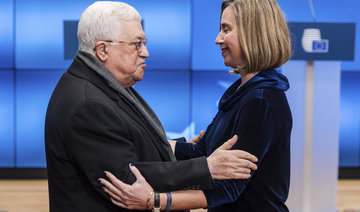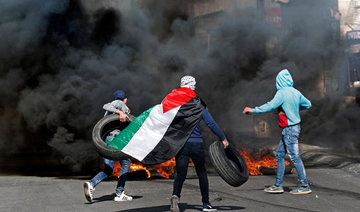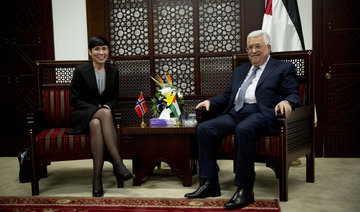NEW YORK: The UN agency for Palestinian refugees has asked European and Gulf donors to plug the $65 million funding gap created by the US decision to slash its contribution by more than half.
Pierre Krahenbuhl, commissioner-general of the UN Relief and Works Agency (UNRWA), warned that schools and health clinics for Palestinians across the region could be shuttered as the agency seeks to raise a total of $500 million in the “Dignity is Priceless” campaign.
Krahenbuhl has been in funding talks with the EU, Belgium, Norway, Finland, Sweden and the Netherlands as well as looking to the Arabian Gulf, which has become a key donor in recent years.
“Saudi Arabia and the UAE have invested significantly in our reconstruction projects in Gaza in the aftermath of conflict,” Krahenbuhl told Arab News. “There is a renewed effort in mobilization that is required for our funding to become sustainable.”
Saudi Arabia was UNRWA’s third-biggest donor after the US and EU, Krahenbuhl said. Thanks also to large sums from Kuwait and the UAE, Arab League members met a decades-old pledge of funding 7.8 percent of the agency’s budget in 2015 and 2016, although the proportion dipped in 2017.
UNRWA is funded almost entirely by voluntary contributions from UN members. The US, by far the largest contributor, said this month it would withhold $65 million of its $125 million donation.
President Donald Trump questioned the value of such funding and linked donations with the Israeli-Palestinian peace process. The State Department said UNRWA needed to make unspecified reforms.
Trump complained on social media that the US gave the Palestinians “hundreds of millions of dollars a year and get no appreciation or respect.” He said: “With the Palestinians no longer willing to talk peace, why should we make any of these massive future payments to them?”
Aid should not be withheld to gain leverage against the Palestinians, Krahenbuhl said. “It is very important to preserve humanitarian funding from political considerations.”
About 525,000 boys and girls in 700 UNRWA schools could be affected by US cuts, as could health clinics, and the decision could promote extremism and further destabilize the Middle East, said Krahenbuhl.
More than half of the 2 million people in Gaza depend on support from UNRWA and other charities. Palestinians say the cut in US funding could deepen hardship in the Gaza Strip, where the unemployment rate is already 46 percent.




















